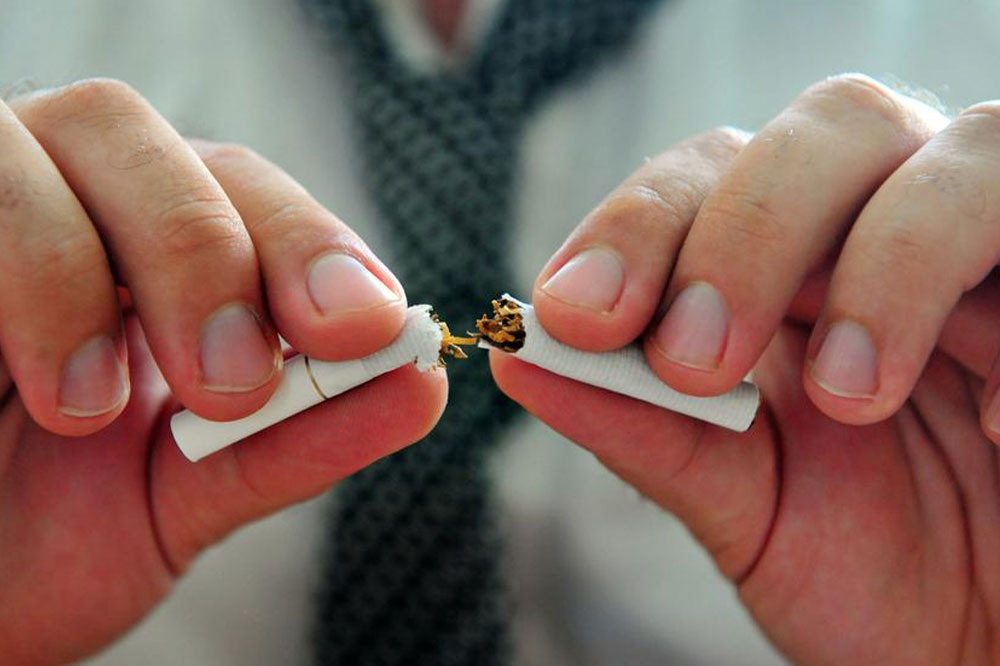
Effective Methods to Quit Smoking
You have decided to stop smoking. No excuses, no more putting your lungs and health at risk. Bravo! You have already taken the first major step in smoking cessation. And we’re here to help you cross the finish line! Effective methods for smoking cessation typically comprise three phases: preparation, intervention, and maintenance, and here’s how you can do it.
Preparation
Plan for the challenges that you will face when you quit. Most people who relapse and begin smoking again end up doing so within the first three months. Preparing yourself for the short-term challenge of nicotine withdrawal, mood swings, cigarette cravings will boost your motivation to quit. It is all about confidence and the unshaken belief that you will be successful.
Intervention
If you are a very heavy smoker, i.e. you smoke more than one pack a day, or have been smoking since maybe a decade, intervention may help you to abstain from what’s now a psychological habit. It’s important to let your close ones voice their concerns so that you have a better idea of how and why you want to quit.
Maintenance
Although most smokers who successfully stop smoking do it on their own steam, many have also relied on cessation programs at some point during their smoking history. Maintenance, in the form of support from professionals, effective coping methods, and healthier, alternative behaviors, are crucial for permanent cessation of smoking.
Here are four effective methods that will slowly, but surely help you prepare, implement and maintain your smoking cessation decision.
- Set a date
‘I need to quit.’ Now you might have had this thought a million times, but unless you zero in on a date to simply stop, you are still right where you are. So start your stop smoking plan with a set date, ideally today, or within the next week. This gives you enough time to prepare and stick to your decision. For example, if you mostly end up smoking with colleagues at work, stop during the weekend, so you have a few days’ heads start to adjust to the withdrawals. If you reach for a pack of cigarettes when you are stressed, join a meditation program a week in advance. Include a morning run in your routine if you start your day with a cigarette before you quit. - Make yourself accountable
Family, friends, and co-workers are the best people to hold us accountable for our own decisions. Tell them that you plan to quit smoking. Ask for their support and encouragement in this challenge that you have set yourself. Yes, the primary work is yours, but it doesn’t hurt to take some help in case we slip up. You might also have many friends around your smoking habit. How about looking for a buddy who is looking to stop smoking as well? You could motivate each other when smoking cessation feels like an uphill battle. - Trash and purge
Purging is therapeutic. Purge yourself of all traces of carcinogens that destroy your lungs. Remove all forms of tobacco products from your home, car, and workplace. Throw away every single one of your cigarettes (no backup stash), lighters, ashtrays, and matches. Wash your clothes. Spray fresheners on every item that smells like smoke. Clean your car, clean your drapes and carpet, and furniture. Rid your personal spaces of tobacco. - Talk to a professional
Your doctor, dentist, and other health professionals can give important help in smoking cessation. Counseling will increase your knowledge about effective smoking-cessation methods. Doctors can encourage and support you to quit and also prescribe medication to help with withdrawal symptoms. If you can’t see a doctor, your local pharmacy also has many products over the counter such as nicotine patches, lozenges, and gum. These products are very useful if you feel like you have a strong physiological addiction to nicotine ends.
You must have faith in your ability to restrain and successfully implement effective methods for smoking cessation.


